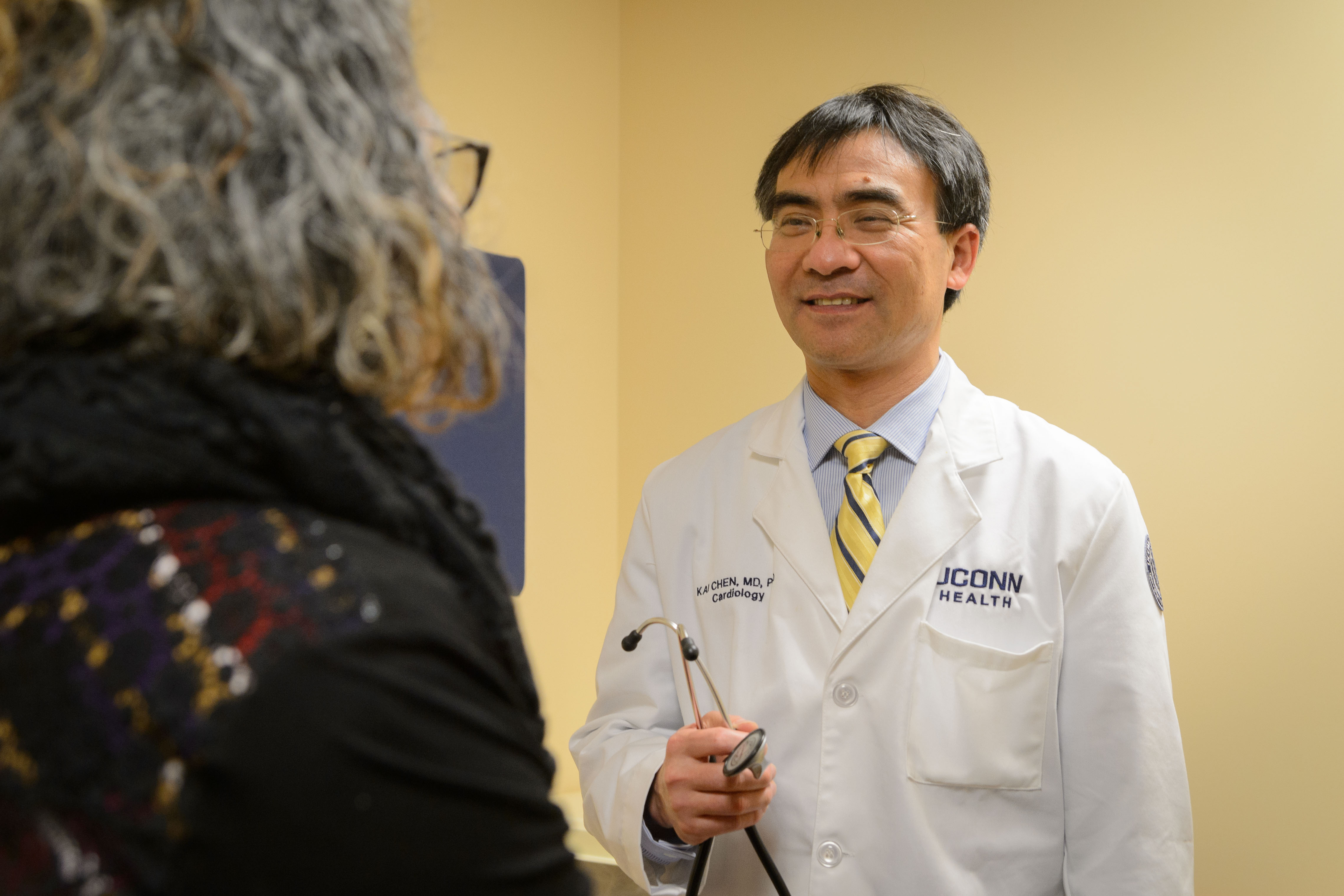UConn Today sat down with Dr. Kai Chen of UConn Health’s Pat and Jim Calhoun Cardiology Center to better understand COVID-19’s impact on cardiovascular health, and what you can do to lower the potential risk to your heart’s health should you contract the virus.
What do we know so far about the virus’s impact on the heart?
COVID-19 is not only a lung disease that increases heart workload, but also attacks the heart in a few different ways: COVID-19 triggers more heart attacks; the virus can directly infect the heart causing heart muscle damage and heart failure; and COVID is associated with increased blood clots that compromise circulation to lungs, heart, and brain.
What kind of patient heart issues have you been caring for most during the pandemic?
The most common cardiac issue in patients with COVID-19 is perhaps the cardiac injury that can be measured in the bloodstream as elevated enzymes. These patients have more complications and worse hospital outcome.
Why is one’s heart health at greater risk of complications following infection?
SARS-CoV2 virus causes infection by invading cells through an entry called ACE2 receptor that is abundantly present in lung epithelial cells, heart cardiomyocytes, and vascular endothelial cells. That is why the cardiovascular system becomes a direct target of the virus. In addition, COVID-19 is associated with excessive inflammatory response, the so-called cytokine storm that further ravages the heart.
What heart conditions are worsened should you contract COVID-19?
It is well established that people at older age, with hypertension, diabetes, obesity, or pre-existing cardiac conditions such as coronary artery disease and congestive heart failure are more vulnerable, and also have worse outcomes while suffering from COVID-19.
How can someone who has a high-risk heart condition better protect themselves?
First, do not interrupt cardiac care if you have a pre-existing heart condition. Second, practice social distancing, mask-wearing, and hand-washing – these are the most effective ways to prevent the disease. Third, seek medical advice promptly if experiencing symptoms such as chest discomfort, shortness of breath, palpitation, or deterioration of pre-existing cardiac condition. Patients have avoided calling 911 or self-presenting to the emergency room out of fear, and we have seen tragic scenarios increase as the result. Fourth, maintain a healthy lifestyle: eat healthy, quit smoking, restrict alcohol intake, get adequate sleep, and keep physically active. Importantly, physical activity is strongly encouraged, either in a home setting or outdoor areas with social space.
How important is it for even young and heart-healthy people to take action – and what action can they take?
COVID-19 also infects people who do not have underlying heart conditions, and who are young. We have seen youth have no exception for COVID-19 and sometimes tragic outcomes. The best way to prevent COVID-19 is to avoid being exposed to the virus. Be vigilant and continue practicing social distancing and wearing face coverings, in particular during this reopening phase. In addition, testing is readily available now. If having symptoms, one should get the test and not be someone who unknowingly transmits the disease to others, in particular to vulnerable populations.



